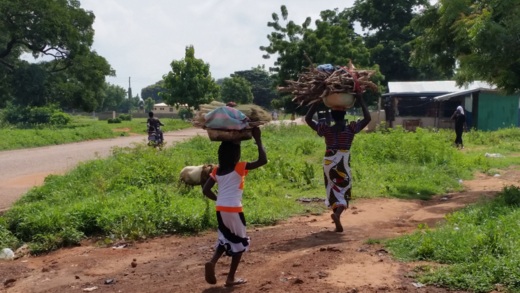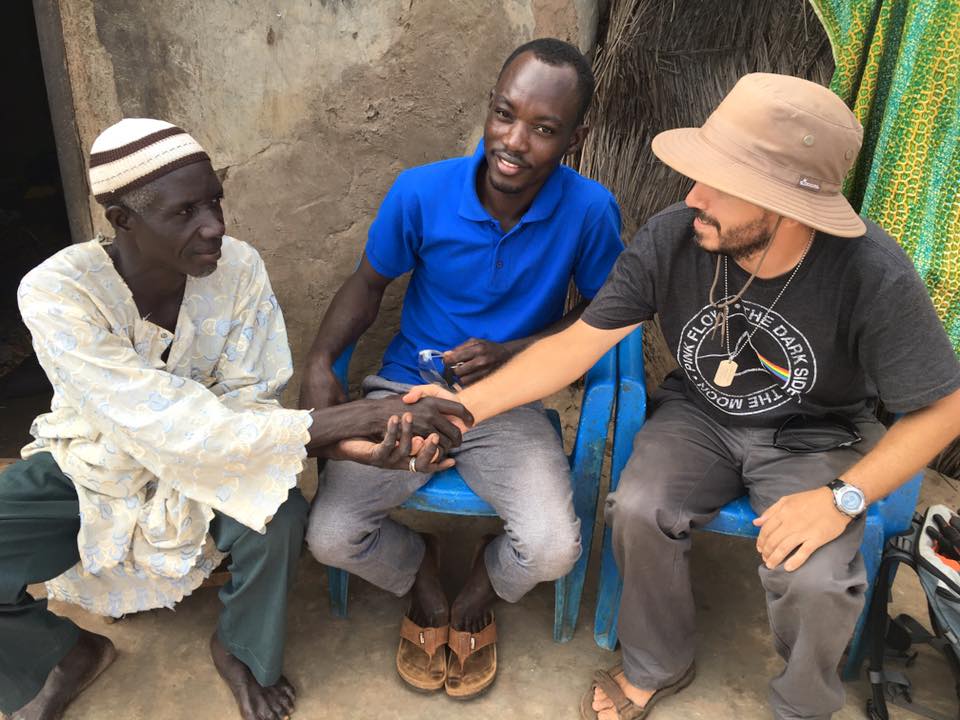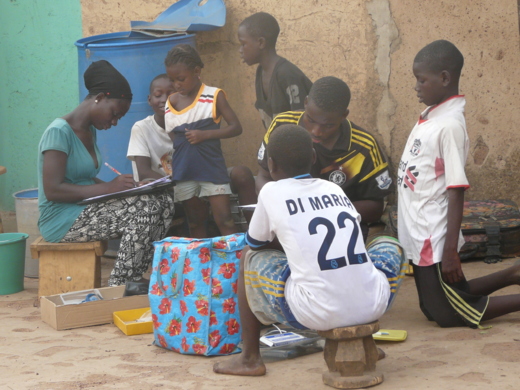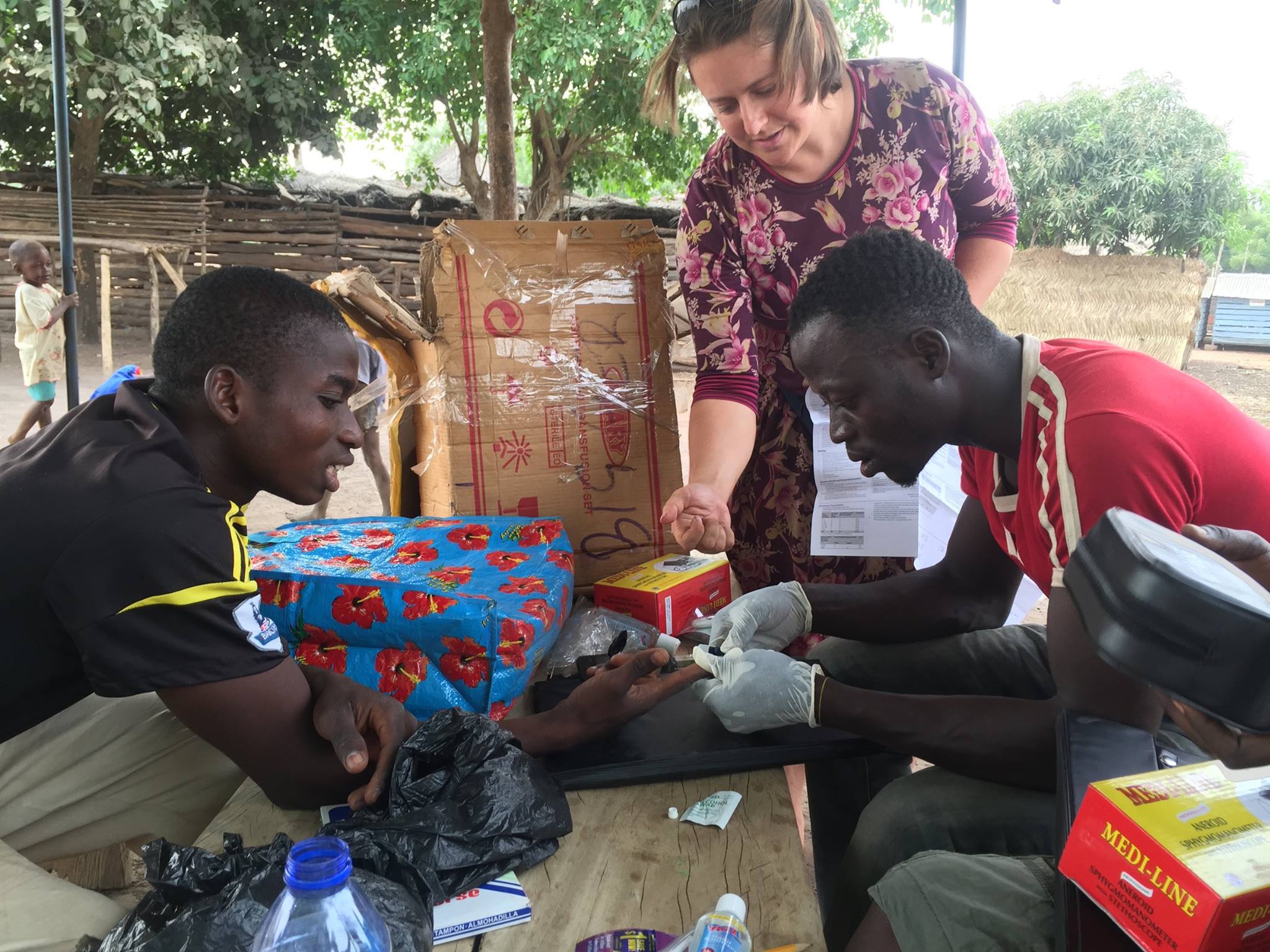
Developing HA: Ghana’s Principles of Service
By AdministratorAt the end of 2014, I wrote the article below for American Atheist magazine. It was the fifth piece in a series about Pathfinders Project, the year-long global service and research trip intended as the first step toward the Humanist Action: Ghana. I submitted the first four articles to the magazine from the field as the other Pathfinders and I completed projects with clean water, education, human rights, and environmental conservation organizations in Cambodia, Uganda, Ghana, Haiti, Ecuador, Colombia, and Guatemala. I wrote this last article after I had returned to the U.S. and had begun working to launch the Humanist Action: Ghana as a permanent program of Foundation Beyond Belief.
In the article, I set out to define humanist service. You'll see a clear connection between the thinking in this piece and HA: Ghana's Principles of Service. In another two years, I'll be able to write a new piece about how we have continued to refine our guiding principles over time. We are committed to seeking better and better answers to the same basic question: how do we avoid causing harm as we fulfill our desire to do good? For now, I hope you enjoy this glimpse into the early development of the Humanist Action: Ghana program.
 All of the Good, None of the God, Part Five: Launching the Humanist Action: Ghana
All of the Good, None of the God, Part Five: Launching the Humanist Action: Ghana
Originally published in the Fourth Quarter 2014 issue of American Atheist Magazine: A Journal of Atheist News and Thought
What is humanist service, really? I don’t just mean service done by humanists; I mean service designed by humanists as an expression of humanist principles. What does that look like? How should the Humanist Service Corps differ from religious service programs or even other secular service models?
When I first launched Pathfinders Project, I hadn’t fully formulated those questions, but I did attempt to put human interaction front and center. I hypothesized that the service we completed would provide a meaningful context for intercultural exchange and build the trust necessary to have fruitful conversations about differences in religious beliefs. This turned out to be true for each of our ten projects. Many of the devoutly religious people we worked alongside appreciated the fact that we were there neither to convert nor to deconvert them. Others freely admitted that until they collaborated with us, they had assumed all atheists were immoral.
With the easy success of these conversations came the realization that we had been posing the wrong question. Instead of asking where we could travel safely as atheists, we should have been asking how we could volunteer internationally without causing harm. This is a question demanded of us by our humanism because even careful volunteers can do damage merely by being visible in otherwise homogeneous communities. It is difficult to “first, do no harm” when the very image of the foreign volunteer reinforces the colonial concept that change—whether desired or undesired—is driven by forces external to the community.
If there is a responsible way forward, perhaps we can find it first by looking at counter-examples. We know that many volunteers fall into the trap of wanting to personally do as much as possible in the short amount of time they have. Although the volunteer may find such work fulfilling, the number of children they teach or the number of wells they dig do not necessarily create sustainable change for the community. In fact, programs that use volunteers to fill existing skill gaps—rather than to train locals to fill those gaps—directly undermine sustainable change. Sometimes there is no skill gap at all, and insufficiently trained volunteers compete against local professionals who are at a competitive disadvantage in a resource-poor environment since the volunteers work for free. When these programs move on to other locations, they often fail to leave behind trained teachers to continue the education or skilled technicians to maintain the wells.
 The volunteers who participate in these programs tend to focus on what they bring to the situation. But when volunteers see their worth in terms of the gaps they can fill in a community, they necessarily emphasize what the community lacks, rather than what it has. A better approach is for volunteers to help the community leverage its strengths to design and implement solutions for what it needs. Volunteer programs of this kind should always be moving toward the point where they are no longer necessary. If the solution includes a permanent role for volunteers, something is amiss.
The volunteers who participate in these programs tend to focus on what they bring to the situation. But when volunteers see their worth in terms of the gaps they can fill in a community, they necessarily emphasize what the community lacks, rather than what it has. A better approach is for volunteers to help the community leverage its strengths to design and implement solutions for what it needs. Volunteer programs of this kind should always be moving toward the point where they are no longer necessary. If the solution includes a permanent role for volunteers, something is amiss.
This admonition against focusing on deficits might seem to contradict the fact that most service programs exist to address serious problems like insufficient access to clean water, poor sanitation, and lack of resources for school or healthcare. But a community is so much more than a list of problems to solve, and we can’t approach our work with a formula like “community lacks X, volunteer brings/builds X, problem solved.” This thinking is not only dehumanizing and debilitating, but it is also demonstrably false. Volunteers who approach communities without an openness to learn from the residents overlook one of the most fundamental aspects of meaningful human interaction: that we often give most profoundly by receiving.
Programs with good intentions and negative consequences give us a pretty good idea of what humanist service is not. It is not service that blithely or purposefully puts the contribution of the volunteer on display for locals. It is not service that sees the assets of volunteers as the permanent solution to deficits within the community. It is not service designed without the input and oversight of local leaders.
 So, what is humanist service?
So, what is humanist service?
Humanist service focuses not only on what resources the community lacks, but also on the emotional and psychological needs of the people involved. Humanist service seeks neither to convert nor to deconvert. Instead, it aims to connect by focusing on shared values. Humanist service emphasizes the growth rather than the sacrifice of the volunteer.
Above all, humanist service empowers communities. The first way we can do this is to wait for an invitation to collaborate before volunteering in communities that are not our own. The second thing we can do is just that: collaborate. Although we may bring valuable skills, perspectives, and resources with us, this does not entitle us to dictate what solutions to implement. Even when we think we see a more efficient or effective way to do things, we must weigh that relative value against the immense value of a community’s self-determination. Sustainable change occurs when community leaders develop their own skills and confidence by taking the lead in designing and implementing community-driven solutions to problems identified by members of that community.
Foundation Beyond Belief must raise at least $15,000 in the month of April to continue HA: Ghana's important work in 2017-2018. Please make your gift today to ensure we can sustain our culturally-responsible support for grassroots human rights organizations.
